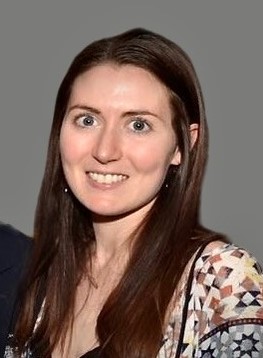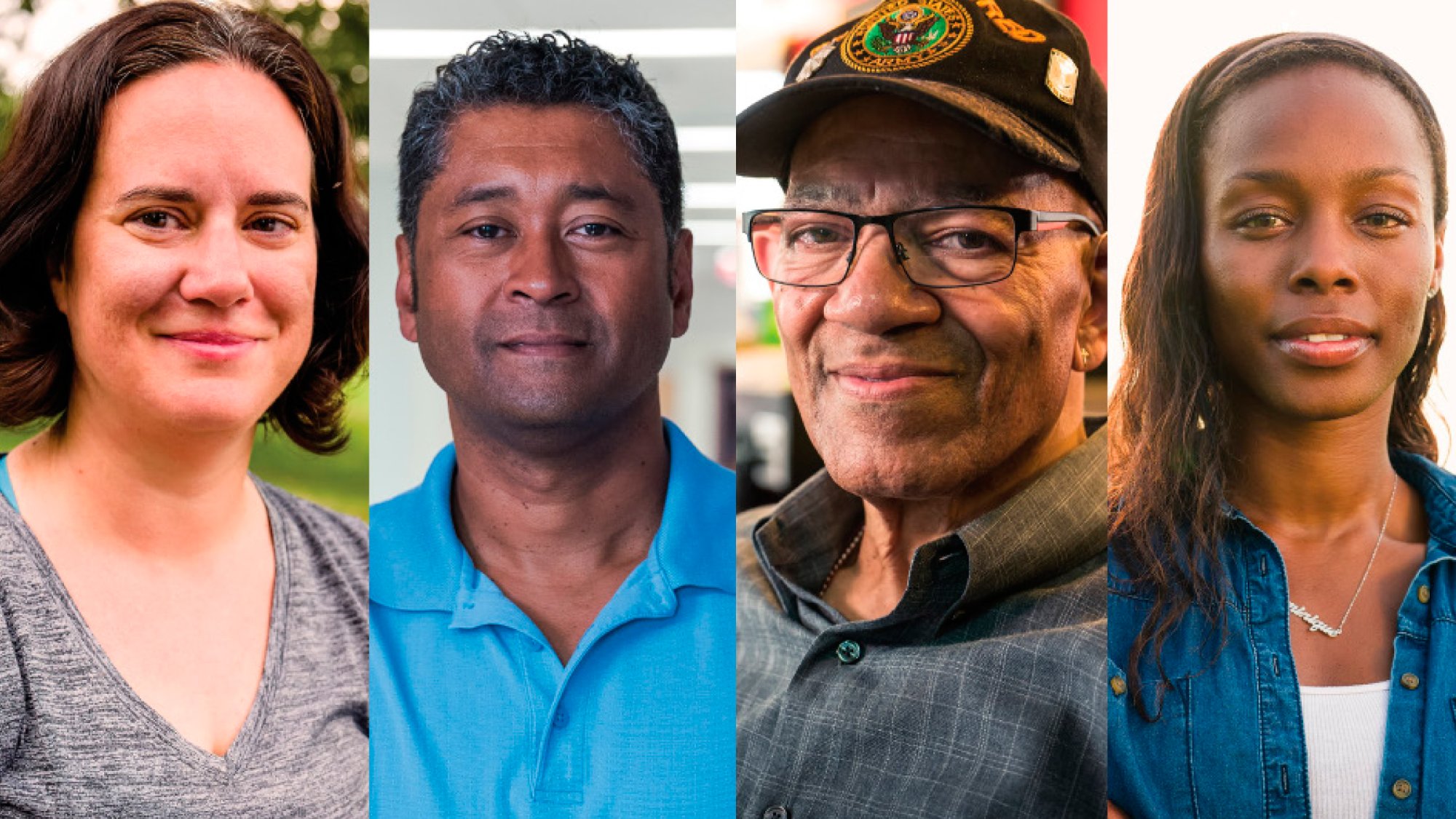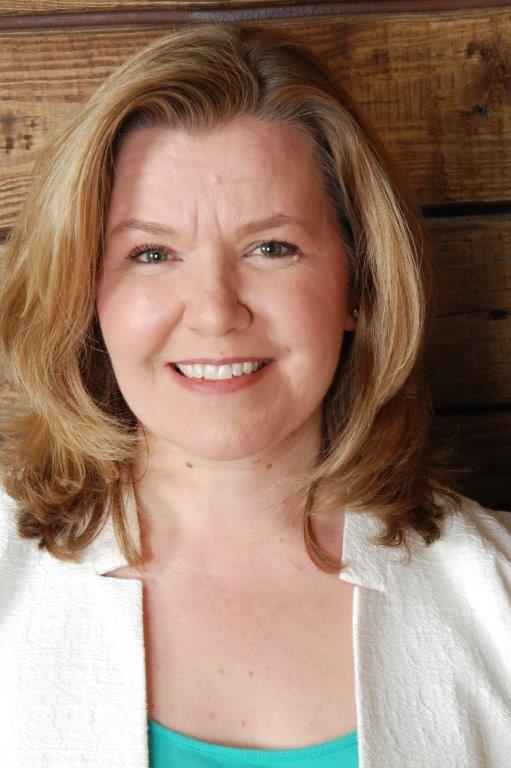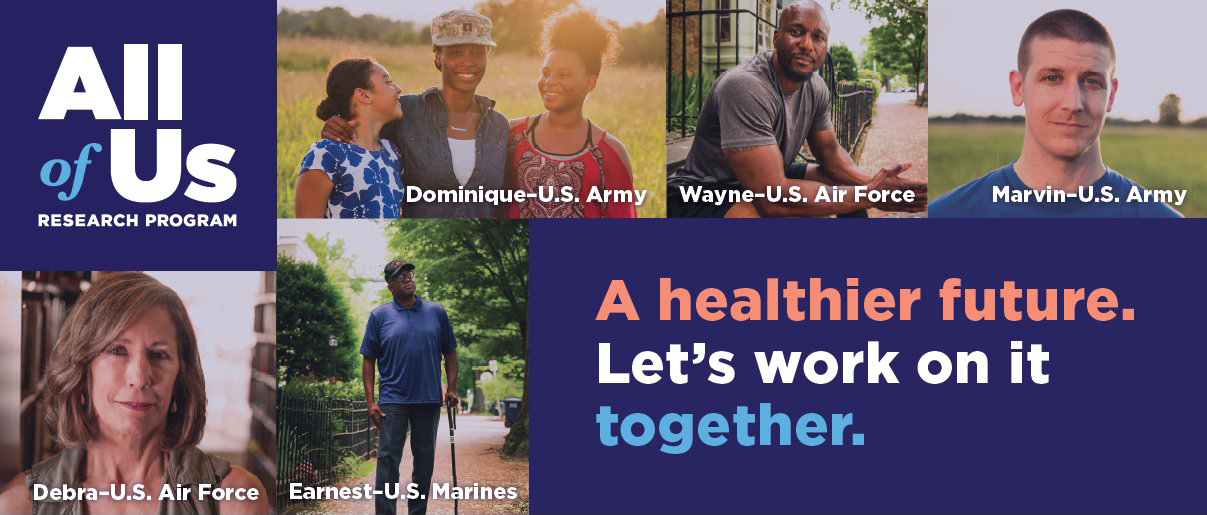Stand up and be counted: Representing more rural veterans in research
Coming from a culture of service, veterans are intrinsically motivated to help others. Lauren Thomann, senior project manager for All of Us at the U.S. Department of Veterans Affairs, has noticed this characteristic altruism while traveling the country to spread the word and encourage veterans to enroll in the National Institutes of Health’s (NIH) All of Us Research Program.
 Lauren ThomannSince 2017, NIH has partnered with the VA to ensure veterans are included in All of Us, which aims to collect health data from at least one million individuals to accelerate research. Working with NRHA, All of Us hopes to reach more rural-living veterans in particular. Thomann says this effort may help improve and personalize health care for future generations, particularly for populations that have been historically underrepresented in biomedical research.
Lauren ThomannSince 2017, NIH has partnered with the VA to ensure veterans are included in All of Us, which aims to collect health data from at least one million individuals to accelerate research. Working with NRHA, All of Us hopes to reach more rural-living veterans in particular. Thomann says this effort may help improve and personalize health care for future generations, particularly for populations that have been historically underrepresented in biomedical research.
“All of Us is building one of the world’s largest health databases so we can better individualize care, prevention tactics, and treatment based on where someone lives, what they grew up with, and what they were exposed to,” Thomann says. “This database will truly help future generations, and that’s why it needs to be so diverse, so it can benefit as many people as possible.”
Gaining the input of rural veterans is vital in such a large-scale project, as almost a quarter of all veterans, or 4.7 million individuals, live in rural communities. Rural veterans are often older than their urban counterparts and may be at greater risk of chronic health conditions such as diabetes, obesity, and high blood pressure, and they often face unique barriers when it comes to managing their health. There are fewer doctors, hospitals, and other health care services in rural areas, and those that exist are frequently farther away.
"This database will truly help future generations, and that’s why it needs to be so diverse, so it can benefit as many people as possible." - Lauren Thomann |
According to Sherry Sawyer, director and co-principal investigator for All of Us at the VA, geographic isolation and limited access to broadband internet and electronic devices have also contributed to rural veterans being underrepresented in biomedical research.
“One of the biggest challenges for rural veterans with regard to research is the opportunity to participate – essentially rural veterans have not been asked to join in,” Sawyer says. “There’s a disparity in research involvement between people who live in less-populated areas and those in large or mid-size cities where nearby large research universities or health care centers provide people with information about research frequently.”
 |
To extend their reach, the 18 VA health care systems participating in All of Us across the country work to connect with rural veterans through VA community-based outpatient clinics. All of Us representatives regularly travel to small towns to host enrollment events, and they work with community hubs such as public libraries to increase awareness.
 Sherry SawyerSawyer says efforts have also included newspaper ads, billboards, radio spots – and due to the varied nature of rural communities, a lot of trial and error, as what works in one town might not be as effective in another.
Sherry SawyerSawyer says efforts have also included newspaper ads, billboards, radio spots – and due to the varied nature of rural communities, a lot of trial and error, as what works in one town might not be as effective in another.
“Rural living in the United States isn’t just one thing – it’s many things and a lot of different experiences,” Sawyer says. “We’re doing our best to navigate those differences and make connections.”
For the most part, Thomann says rural veterans have responded well to the program – and she says working with people in small towns and learning more about their lives and experiences has been very personally rewarding, motivating her to continue finding new ways to reach them.
“We’ve had some very positive responses,” she says. “We talk to some veterans who are skeptical, but once they hear more want to join. Then we also routinely meet veterans who are super eager to participate. Rural-living veterans have been underrepresented in the past, so I think many of them are excited to contribute to the program.”
"Research will not be able to fuel future health care advances for everyone if everyone is not represented." - Sherry Sawyer |
Because All of Us supports observational research that depends on comparisons between people over time, the inclusion of such underrepresented populations is vital. This will ensure they are represented in studies on things that impact them, such as diabetes, diet, and heart disease, as well as unique environmental exposures and experiences.
“When you only include people who live next to a large research university or only people who get their care at a tier-one medical center, you’re not really getting the answers to the questions you’re asking,” Sawyer says. “If rural people are not included in studies, we will miss a lot of things. Research will not be able to fuel future health care advances for everyone if everyone is not represented.”
 |
Thomann encourages health care providers working with rural veterans to tell their patients about All of Us and emphasize how it can benefit them, their families, and future generations.
“Let your patients know we’re here,” Sawyer adds. “If health care providers are interested, we’re happy to talk to them and answer questions, because the research conducted with All of Us data is truly going to be transformative for the next generation of health care in this country.”
Gain more information and register for or share opportunities to contribute to the National Institutes of Health's All of Us Research Program.
